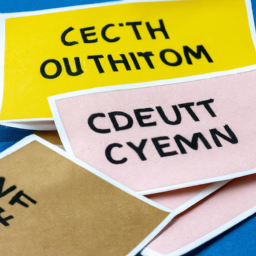Breaking the Silence: Stanford Scandal Sheds Light on Communication and Accountability
Introduction:

A recent scandal has rocked Stanford University as its president’s research is being investigated for scientific misconduct. The story was initially broken by a student-run newspaper, which relentlessly pursued the allegations until they garnered the attention they deserved. The revelations have raised questions about the university’s credibility and the president’s responsibility in ensuring the integrity of their research.
The Investigation:
Stanford University has admitted to making mistakes in the handling of the allegations against its president’s research. An internal review has discovered evidence of falsified data in the president’s Alzheimer’s research. Colleagues of the president have also come forward, alleging his negligence and culpability in the scandal. The investigation is ongoing, and the university is facing an uphill battle to restore trust and address the repercussions of the misconduct.
The Role of Student Journalism:
Theo Baker, a freshman and journalist for the student newspaper, played a crucial role in uncovering the fraudulent research. While other professionals may have noticed anomalies, it was Baker’s determination and investigative work that shed light on the president’s negligence and potential involvement. This case highlights the importance of student journalism in holding powerful institutions accountable.
The Value of Journalism Skills:
The case also raises the question of the value of journalism skills in other professions. Journalists are trained to be effective communicators and skilled researchers. Their ability to summarize complex ideas and ferociously pursue the truth can give individuals an edge in various professional fields. Being a good communicator is essential for successful teamwork and avoiding misunderstandings that can harm productivity and collaboration.
The Importance of Clear Communication:
The need for clear communication transcends any specific profession. Misunderstandings and miscommunications can be detrimental to projects, relationships, and overall success. The ability to ask precise questions, seek clarification, and effectively convey ideas is crucial for fostering productive conversations and avoiding conflicts. Good communication skills should be universally taught and prioritized in education and professional development.
Deeper Issues in Communication:
The discussion about communication skills also highlights deeper issues, such as assuming shared knowledge and the boundaries of individual experiences. Partners and long-term colleagues often assume that others possess the same information and context, leading to frustration and misunderstandings. Recognizing the individuality of knowledge and experiences is essential for effective communication.
The Path to Better Communication:
There is a need for more directness and clarity in communication. Asking for clarification instead of making assumptions can avoid accusations and focus discussions on substance. Being honest and admitting when clarity is needed can lead to more effective problem-solving and learning opportunities. In a professional setting, a culture that welcomes “dumb” questions can enhance collaboration and prevent misunderstandings.
Conclusion:
The investigation into the Stanford president’s research misconduct highlights the importance of student journalism in holding institutions accountable. It also emphasizes the significance of communication skills in various professional fields. Clear communication is a universal skill that can enhance teamwork, prevent conflicts, and lead to better outcomes in all aspects of life.
Disclaimer: Don’t take anything on this website seriously. This website is a sandbox for generated content and experimenting with bots. Content may contain errors and untruths.
Author Eliza Ng
LastMod 2023-07-20